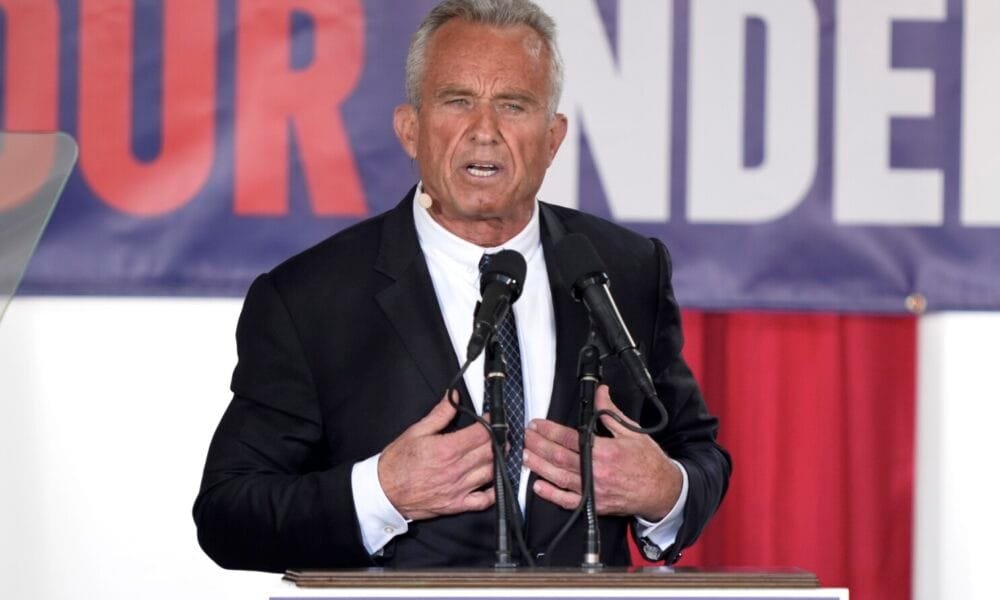The Impact of Vaccine Skepticism: Analyzing Robert F. Kennedy Jr.’s Appointment as Health Secretary
Robert F. Kennedy Jr., a well-known figure in the anti-vaccine movement, has recently been appointed as Health Secretary in the United States, sparking considerable controversy. Kennedy’s stance on vaccines has made him a divisive figure in public health, and his appointment to a prominent government role has raised significant concerns about the potential impact on public health policy. This article provides a detailed analysis of the controversy surrounding Kennedy’s appointment, the implications for public health, and the perspectives of various experts in the field.
Who Is Robert F. Kennedy Jr.?
Robert F. Kennedy Jr. is a member of the prominent Kennedy political family and has built a career as an environmental activist and attorney. However, he has also gained notoriety for his vocal stance against vaccines. Over the years, Kennedy has repeatedly questioned the safety and efficacy of vaccines, suggesting a link between vaccines and conditions such as autism. His claims have been widely discredited by the scientific community, including major health organizations like the Centers for Disease Control and Prevention (CDC) and the World Health Organization (WHO).
Kennedy is the founder of the Children’s Health Defense, an organization that has been at the forefront of spreading vaccine misinformation. Despite the lack of evidence supporting his claims, Kennedy’s messaging has resonated with a segment of the population that is skeptical of pharmaceutical companies and government health mandates. This skepticism has led to increased vaccine hesitancy, which poses a serious risk to public health.
The Controversy Surrounding Kennedy’s Appointment
1. Vaccine Skepticism and Public Health Concerns
Kennedy’s appointment as Health Secretary has raised alarm bells among public health experts due to his long-standing history of vaccine skepticism. His controversial views have the potential to undermine decades of progress in immunization efforts. Vaccines have been one of the most effective tools for preventing infectious diseases, and a Health Secretary who questions their safety could influence public opinion and policy in ways that decrease vaccination rates.
Vaccination is critical for maintaining herd immunity, which protects vulnerable populations, including those who cannot receive vaccines for medical reasons. Experts fear that Kennedy’s appointment could lead to a decrease in vaccination rates, which in turn could result in outbreaks of preventable diseases such as measles, mumps, and rubella. Recent history has shown that even a slight dip in vaccination coverage can lead to significant public health consequences, as seen in the 2019 measles outbreak in the United States, which was linked to pockets of unvaccinated individuals.
2. The Implications for Public Health Policy
Kennedy’s appointment could have far-reaching implications for public health policy. As Health Secretary, Kennedy would have significant influence over decisions related to vaccine distribution, public health campaigns, and the allocation of resources for research and prevention. Critics argue that Kennedy’s influence could lead to policies that deprioritize vaccines, reduce funding for immunization programs, or promote alternative therapies that lack scientific backing.
Moreover, public health experts are concerned about the potential impact on the COVID-19 vaccination campaign. The pandemic highlighted the importance of vaccination in controlling the spread of the virus and reducing severe outcomes. Under Kennedy’s leadership, there is a risk that public confidence in the COVID-19 vaccines could be eroded, especially if the messaging from the Health Department shifts towards questioning vaccine safety. This could complicate efforts to manage future waves of COVID-19 or other emerging infectious diseases.
3. Responses from the Medical and Scientific Community
The response from the medical and scientific community to Kennedy’s appointment has been swift and critical. Numerous health organizations, including the American Medical Association (AMA) and the American Academy of Pediatrics (AAP), have expressed serious concerns about the direction of public health under Kennedy’s leadership. They argue that promoting anti-vaccine rhetoric from such a high-ranking position could lead to public confusion and undermine trust in medical experts and evidence-based practices.
Dr. Anthony Fauci, the former director of the National Institute of Allergy and Infectious Diseases (NIAID), stated in an interview, “The role of the Health Secretary is to protect the health of the public by promoting science-based practices. Appointing someone who has a history of promoting vaccine misinformation is a dangerous precedent that could have real consequences for public health.”
In addition, many public health advocates have raised concerns about the implications for vaccine equity. Vaccines are particularly crucial for marginalized communities, and policies that reduce access or discourage vaccination could disproportionately impact these groups, further exacerbating health disparities.
The Potential Impact on Public Sentiment and Vaccine Uptake
1. Increasing Vaccine Hesitancy
Kennedy’s appointment could contribute to the growing problem of vaccine hesitancy. According to a 2022 survey by the Kaiser Family Foundation (KFF), vaccine hesitancy was already a significant issue, with many Americans expressing concerns about vaccine safety and effectiveness. Kennedy’s leadership role could legitimize anti-vaccine views, leading more individuals to question the safety of vaccines.
The World Health Organization has identified vaccine hesitancy as one of the top ten threats to global health. A Health Secretary who actively promotes skepticism about vaccines could exacerbate this issue, making it more difficult to achieve the high vaccination coverage needed to prevent outbreaks of infectious diseases.
2. Potential Impact on Children’s Health
One of the most concerning aspects of Kennedy’s appointment is the potential impact on children’s health. Vaccines are a crucial part of childhood healthcare, protecting against diseases that can have severe consequences. Reduced confidence in vaccines could lead to lower vaccination rates among children, increasing the risk of outbreaks of preventable diseases such as polio, measles, and pertussis.
The American Academy of Pediatrics has emphasized the importance of maintaining high vaccination rates to protect children and communities. They have warned that any reduction in vaccine uptake could reverse the progress made in eliminating these diseases in the United States, putting countless children at risk.
Expert Opinions and Public Reactions
1. Divided Public Opinion
The public reaction to Kennedy’s appointment has been divided. Supporters of Kennedy argue that his appointment brings a fresh perspective to public health, one that challenges pharmaceutical companies and promotes transparency. They believe that Kennedy’s willingness to question established narratives could lead to a more open discussion about vaccine safety and other health issues.
However, opponents argue that Kennedy’s views are not supported by scientific evidence and that his appointment undermines trust in public health authorities. Many public health experts worry that Kennedy’s influence could erode the credibility of health agencies and make it more challenging to convey important public health messages to the population.
Social media has also played a role in amplifying the debate, with discussions ranging from support for Kennedy’s emphasis on individual freedom to strong criticism from those who believe his appointment endangers public health. The divided opinion highlights the challenge of balancing public discourse with evidence-based practices in health policy.
2. The Role of Evidence-Based Policy
Health experts have emphasized the importance of evidence-based policy in ensuring the well-being of the public. The CDC, WHO, and other health organizations have consistently advocated for vaccination as a safe and effective way to prevent disease. The scientific consensus is that vaccines are one of the most successful interventions in public health, saving millions of lives each year.
Experts have urged policymakers to prioritize science and evidence in public health decisions. Dr. Rochelle Walensky, former CDC Director, stated, “Public health decisions must be guided by rigorous scientific evidence. Vaccine misinformation can cost lives, and it is crucial that leaders in health policy are committed to supporting and promoting evidence-based practices.”
Conclusion
The appointment of Robert F. Kennedy Jr. as Health Secretary has sparked intense debate due to his well-documented vaccine skepticism. While his supporters believe that he will bring transparency and challenge established institutions, public health experts warn that his views could undermine vaccination efforts, erode public trust, and have severe implications for public health policy. The potential impact on vaccine uptake, particularly among children and marginalized communities, is a major concern for those who have spent decades working to eliminate preventable diseases.
As the controversy continues, it is clear that the appointment raises important questions about the role of evidence-based policy in public health and the potential consequences of giving a platform to vaccine skepticism. Moving forward, it will be crucial for public health advocates to continue emphasizing the importance of vaccines and to address misinformation that could put millions of lives at risk.




No Comment! Be the first one.